- Saturday, 17 January 2026
Dhaka, Islamabad Strike Warm
National interest being hailed as the best policy, there are no permanent friends or permanent enemies. The latest to reiterate these is a series of twists and turns in Bangladesh-India relationship. Fifty-five years since Bangladesh declared separation from Pakistan and announced independence, Dhaka and Islamabad seem to have a rethink on the course of their bilateral relations vis-à-vis their South Asian neighbours and other major powers.
Dramatic events between the long “lost brothers”, deeply distanced for more than five decades after the 1971 “traumatic” events, are warming up to better relationships at a breathtaking speed that dazzles their South Asian neighbours in particular and disconcerts India. The development is highly significant in the region’s geo-political landscape, suggesting a sweeping transformation in Pakistan-Bangladesh ties.
It is a tale of two lost brothers rediscovering themselves to bonding for tectonic shift in their bilateral ties, with implications and ripples effects on the rest of the region and neighbourhood. An official visit by Pakistan’s Prime Minister Shehbaz Sharif is on the cards, during which trade and defence partnership prospects will be dwelt upon. Direct air services between the two capitals are being broached. Which means Dhaka and Islamabad might find it feasible to seek airspace arrangements with China and Nepal, especially if New Delhi harbours reservations over the matter.
New Twist
In the wake of Bangladesh’s student movement on August 5, Prime Minister Sheikh Hasina Wajed fled to India for political asylum. Her government had lost all bearings of governance amidst the unrest, during which several hundred persons were killed. When Wajed began issuing statements from her shelter in Delhi, rapping the interim government that Yunus heads, Dhaka issued an arrest warrant against her. She faces a series of charges, including mass murder and corruption. Dhaka’s Tribune rued in an editorial that India had “an unparalleled sway over Sheikh Hasina’s regime,” despite her “undemocratic practices, rampant corruption, human rights violations, and systematic dismantling of state institutions”, reducing Bangladesh to “a near-vassal state”.
In July, the Supreme Court scrapped much of the quota that had been in operation since 1972—an issue that had been festering ever since. It was one of the immediate causes of last summer’s massive student protests, in which more than 110 people were killed. Consequently, the Appellate Division at the Supreme Court ruled that 93 per cent of government jobs should be filled on merit-basis as against the previous provision for 56 per cent of jobs reserved under the quota system for different groups. For four days from August 5, a free-for-all situation occurred in the absence of a government in control. Confusion ruled and miscreants and extremist elements perpetrated violence on minorities. Nobel Laureate Muhammad Yunus returned home to take responsibility as the Interim Government’s Chief Adviser.
With the regime change, Indian influence on Bangladesh has eroded at a time when New Delhi faces the pressing task of shoring up relationships with its other neighbours. SAARC, whose summit has been held up for nine years due to ties between India and Pakistan having dipped rock bottom, could have been an ideal platform for a modicum of communication in these trying times. The media on both sides of the border are engaged in a running war of words, especially over sporadic incidents in which some miscreants attacked Hindu minorities during the earlier weeks of the political change.
The Tribune editorialised: “The Indian media seized upon this incident to fabricate accusations of minority persecution, escalating their smear campaign against Bangladesh. Even West Bengal Chief Minister Mamata Banerjee called for the deployment of UN peacekeeping forces in Bangladesh, exacerbating the situation.” The news outlet also pointed out that Hindu minority traditionally enjoyed privileges disproportionate to its demographic share, with nine per cent of the country’s population holding over 20 per cent of government jobs, largely in key positions. Yunus and his Pakistani counterpart met on the sidelines of 11th D-8 Summit in Cairo in December, after which the Bangladeshi leader pledged to resolve all outstanding issues with Pakistan since the 1971 separation from the western wing.
Sharif responded: “We discussed strengthening historical and cultural ties, increasing trade, and exploring cooperation in IT, chemicals, leather, surgical goods and other sectors.” The “other sectors” included the strategically sensitive defence, too. Media reports are already speculating on Islamabad’s response to Dhaka’s desire to obtain nuclear technology. (Established in 1997, the Developing Organisation for Economic Cooperation [D-8] countries include Bangladesh, Egypt, Indonesia, Iran, Malaysia, Nigeria, Pakistan and Turkey. Its partners constitute a combination with considerable potential for major cooperation.) Even as Dhaka-Delhi relations have dipped deep, slogans like “Occupy Kolkata” and calls for the United Nations’ intervention in Bangladesh have only added to aggravate the atmosphere.
Stemming deterioration
A section in Bangladesh is calling for a “Greater Bangladesh”, comprising parts of India’s northeastern region — West Bengal, Bihar, Odisha, Jharkhand, Sikkim, Arunachal Pradesh, Assam, Meghalaya, Tripura, Mizoram, Manipur, Nagaland and West Bengal’s capital Kolkata. The group making such unwarranted claim includes retired army personnel who boast of being well-trained, fighting fit and ready for action. New Delhi must have noted that no official reaction from the Yunus team has been issued to discourage such provocative statements.
The scenario underscores the ongoing bad feel between the two capitals that never recorded such conditions since Bangladesh’s independence. Improved Dhaka-Islamabad relationship in itself should not necessarily be construed as belligerence against New Delhi. How the Yunus team floats its neighbourhood policies should portray the picture better, once cooler times set in and ground reality dawns on all parties. Of note is that post-World War II Germany reconciled to the new clime, obtained huge loans, revived to host the 1972 Olympics and emerged as the backbone of the European Union. Japan, too, adapted to the new order, hosted the Tokyo Olympics in 1964 and has emerged as the world’s No. 4 economy in GDP terms.
For the first time, Bangladesh observed Pakistan founder Muhammad Ali Jinnah’s 76th death anniversary barely six weeks after the “Monsoon Revolution”, in what analysts said symbolised the healing of wounds in a spirit of reconciliation. This was the first time that Bangladesh marked Jinnah’s death anniversary. The roller-coaster progress in Dhaka-Islamabad relations can neither be dismissed as a temporary phenomenon nor should it displease anyone. The two Muslim-majority countries, with a combined population of 380 million, should have come close, and are getting closer. Any doubts and suspicions in the neighbourhood over the recent developments should be allayed for the much-needed regional harmony, and expansion in cooperation among all South Asian countries.
(Professor Kharel specialises in political communication.)



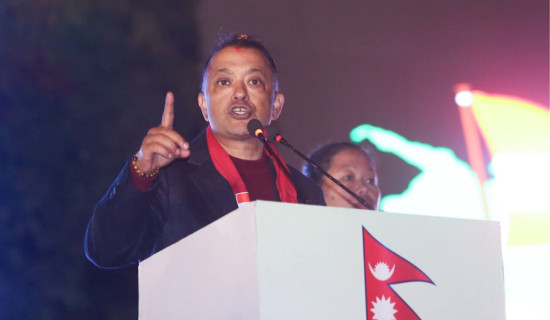
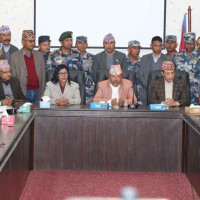
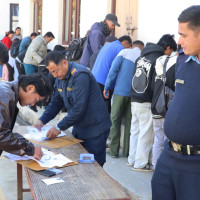
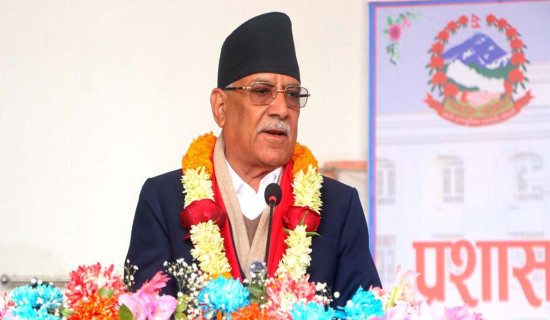
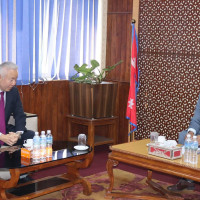
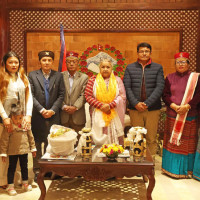




-original-thumb.jpg)
-original-thumb.jpg)

